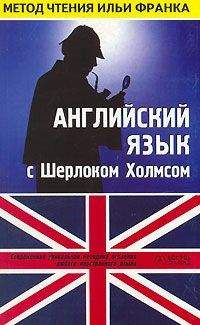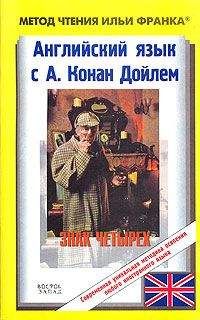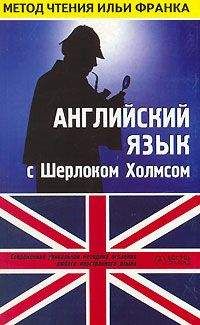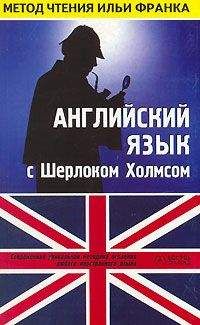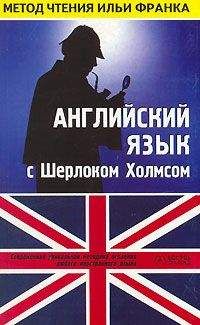desultory [ˈdes(ǝ)lt(ǝ)rɪ], financier [f(a)ɪˈnænsɪǝ], thoroughfare [ˈƟʌrǝfeǝ]
Our client appeared to have taken fresh heart at the little glimpse of hope which had been presented to him, and he even broke into a desultory chat with me over his business affairs. A short railway journey and a shorter walk brought us to Fairbank, the modest residence of the great financier.
Fairbank was a good-sized square house of white stone, standing back a little from the road. A double carriage-sweep, with a snow-clad lawn, stretched down in front to two large iron gates which closed the entrance. On the right side was a small wooden thicket, which led into a narrow path between two neat hedges stretching from the road to the kitchen door, and forming the tradesmen’s entrance. On the left ran a lane which led to the stables, and was not itself within the grounds at all, being a public, though little used, thoroughfare. Holmes left us standing at the door and walked slowly all round the house, across the front, down the tradesmen’s path, and so round by the garden behind into the stable lane.
So long was he that Mr. Holder and I went into the dining-room (его не было так долго, что мы с мистером Холдером вошли в столовую) and waited by the fire until he should return (и принялись ждать, /сев/ у камина, пока он вернется). We were sitting there in silence (мы сидели молча) when the door opened and a young lady came in (как вдруг дверь отворилась, и вошла молодая девушка). She was rather above the middle height (она была немного выше среднего роста), slim (стройная), with dark hair and eyes (с темными волосами и глазами), which seemed the darker against the absolute pallor of her skin (которые казались еще темнее на фоне совершенной бледности ее кожи). I do not think that I have ever seen such deadly paleness in a woman’s face (не думаю, что когда-либо видел такую мертвенную бледность женского лица). Her lips, too, were bloodless (ее губы также были совсем побелевшие; bloodless — бескровный, бледный), but her eyes were flushed with crying (а глаза, напротив, покраснели от слез). As she swept silently into the room (когда она тихо вошла в комнату) she impressed me with a greater sense of grief (то поразила меня еще бóльшим ощущением горести = она показалась мне более горюющей) than the banker had done in the morning (чем банкир утром), and it was the more striking in her as she was evidently a woman of strong character (и это было особенно необыкновенно, так как она, по-видимому, была женщиной сильного характера), with immense capacity for self-restraint (и обладала огромным самообладанием: «с огромной способностью к самообладанию»; to restrain — сдерживать; обуздывать). Disregarding my presence (не обращая внимания на мое присутствие), she went straight to her uncle (она подошла сразу к дяде) and passed her hand over his head with a sweet womanly caress (и провела рукой по его волосам с женской нежностью и лаской = нежно, ласково провела рукой по его волосам; caress — ласка; проявление нежности).
height [haɪt], bloodless [ˈblʌdlɪs], grief [ɡri:f], capacity [kǝˈpæsɪtɪ]
So long was he that Mr. Holder and I went into the dining‑room and waited by the fire until he should return. We were sitting there in silence when the door opened and a young lady came in. She was rather above the middle height, slim, with dark hair and eyes, which seemed the darker against the absolute pallor of her skin. I do not think that I have ever seen such deadly paleness in a woman’s face. Her lips, too, were bloodless, but her eyes were flushed with crying. As she swept silently into the room she impressed me with a greater sense of grief than the banker had done in the morning, and it was the more striking in her as she was evidently a woman of strong character, with immense capacity for self-restraint. Disregarding my presence, she went straight to her uncle and passed her hand over his head with a sweet womanly caress.
“You have given orders that Arthur should be liberated (вы распорядились, чтобы Артура освободили; liberty — свобода), have you not, dad (не так ли, папа)?” she asked.
“No, no, my girl, the matter must be probed to the bottom (нет, моя девочка, дело нужно расследовать до конца).”
“But I am so sure that he is innocent (но я уверена, он невиновен). You know what woman’s instincts are (вы знаете, что такое женское чутье). I know that he has done no harm (я знаю, что он не сделал ничего дурного; harm — вред; убыток, урон, ущерб) and that you will be sorry for having acted so harshly (и вы пожалеете, что поступили /с ним/ столь сурово).”
“Why is he silent, then, if he is innocent (почему же тогда он молчит, если невиновен)?”
“Who knows (кто знает)? Perhaps because he was so angry that you should suspect him (возможно, потому что очень рассердился, что вы подозреваете его).”
“How could I help suspecting him (как же мне его не подозревать), when I actually saw him with the coronet in his hand (если я действительно видел его с диадемой в руках)?”
“Oh, but he had only picked it up to look at it (ну, он только взял ее, чтобы посмотреть). Oh, do, do take my word for it that he is innocent (о, поверьте мне, он невиновен; to take smb.'s word for it — верить на слово). Let the matter drop and say no more (прекратите это дело, хватит /прошу вас/; to drop — бросать, прекращать; снимать, отменять: to drop charges — снять обвинения). It is so dreadful to think of our dear Arthur in prison (как ужасно думать о том, что наш дорогой Артур в тюрьме)!”
instinct [ˈɪnstɪŋkt], suspecting [sǝˈspektɪŋ], prison [ˈprɪz(ǝ)n]
“You have given orders that Arthur should be liberated, have you not, dad?” she asked.
“No, no, my girl, the matter must be probed to the bottom.”
“But I am so sure that he is innocent. You know what woman’s instincts are. I know that he has done no harm and that you will be sorry for having acted so harshly.”
“Why is he silent, then, if he is innocent?”
“Who knows? Perhaps because he was so angry that you should suspect him.”
“How could I help suspecting him, when I actually saw him with the coronet in his hand?”
“Oh, but he had only picked it up to look at it. Oh, do, do take my word for it that he is innocent. Let the matter drop and say no more. It is so dreadful to think of our dear Arthur in prison!”
“I shall never let it drop until the gems are found — never, Mary (я не прекращу дела, пока камни не будут найдены, Мэри)! Your affection for Arthur blinds you as to the awful consequences to me (твоя привязанность к Артуру ослепляет тебя настолько, что ты /забываешь/ об ужасных для меня последствиях). Far from hushing the thing up (я не собираюсь замалчивать это дело; far from — далек от; to hush up — замалчивать, скрывать; замять), I have brought a gentleman down from London to inquire more deeply into it (я пригласил одного джентльмена из Лондона для более тщательного расследования).”
“This gentleman (этого джентльмена)?” she asked, facing round to me (спросила она, поворачиваясь ко мне).
“No, his friend (нет, его друга). He wished us to leave him alone (он захотел, чтобы мы оставили его одного). He is round in the stable lane now (сейчас он идет по дорожке, ведущей к конюшне).”
“The stable lane?” She raised her dark eyebrows (она подняла темные брови). “What can he hope to find there (что он надеется там найти)? Ah! this, I suppose, is he (а вот, полагаю, он сам). I trust, sir, that you will succeed in proving (я надеюсь, сэр, вам удастся доказать), what I feel sure is the truth (в чем я убеждена), that my cousin Arthur is innocent of this crime (что мой кузен Артур невиновен в этом преступлении).”
awful [ˈɔ:f(ǝ)l], consequence [ˈkɔnsɪkwǝns], eyebrow [ˈaɪbrau]
“I shall never let it drop until the gems are found — never, Mary! Your affection for Arthur blinds you as to the awful consequences to me. Far from hushing the thing up, I have brought a gentleman down from London to inquire more deeply into it.”
“This gentleman?” she asked, facing round to me.
“No, his friend. He wished us to leave him alone. He is round in the stable lane now.”
“The stable lane?” She raised her dark eyebrows. “What can he hope to find there? Ah! this, I suppose, is he. I trust, sir, that you will succeed in proving, what I feel sure is the truth, that my cousin Arthur is innocent of this crime.”
“I fully share your opinion (полностью разделяю ваше мнение), and I trust, with you, that we may prove it (и надеюсь, с вашей помощью, мы сможем это доказать),” returned Holmes, going back to the mat to knock the snow from his shoes (ответил Холмс, возвращаясь к половику и стряхивая снег с ботинок). “I believe I have the honor of addressing Miss Mary Holder (полагаю, я имею честь говорить с мисс Мэри Холдер). Might I ask you a question or two (могу я задать вам пару вопросов)?”
“Pray do, sir, if it may help to clear this horrible affair up (конечно, сэр, если это поможет распутать ужасное дело).”
“You heard nothing yourself last night (вы ничего не слышали прошлой ночью)?”
“Nothing, until my uncle here began to speak loudly (ничего, пока мой дядя не начал громко говорить). I heard that, and I came down (я услышала его и спустилась).”
“You shut up the windows and doors the night before (вы закрывали окна и двери накануне вечером). Did you fasten all the windows (вы заперли все окна)?”
“Yes.”
“Were they all fastened this morning (они все были заперты сегодня утром)?”
“Yes.”
prove [pru:v], knock [nɔk], loudly [ˈlaudlɪ], fastened [ˈfɑ:s(ǝ)nd]
“I fully share your opinion, and I trust, with you, that we may prove it,” returned Holmes, going back to the mat to knock the snow from his shoes. “I believe I have the honor of addressing Miss Mary Holder. Might I ask you a question or two?”
“Pray do, sir, if it may help to clear this horrible affair up.”
“You heard nothing yourself last night?”
“Nothing, until my uncle here began to speak loudly. I heard that, and I came down.”
“You shut up the windows and doors the night before. Did you fasten all the windows?”
“Yes.”
“Were they all fastened this morning?”
“Yes.”
“You have a maid who has a sweetheart (у вас работает горничная, у которой есть возлюбленный)? I think that you remarked to your uncle last night (вы говорили дяде вчера вечером) that she had been out to see him (что она вышла повидаться с ним)?”
“Yes, and she was the girl who waited in the drawing-room (да, она была той девушкой, что подавала нам /кофе/ в гостиной; to wait — ждать; прислуживать, обслуживать /за столом и т. п./). And who may have heard uncle’s remarks about the coronet (и /была тем/ кто мог слышать замечания дяди о диадеме = как дядя рассказывал о диадеме).”
“I see (понятно). You infer that she may have gone out to tell her sweetheart (вы подразумеваете, что она могла выйти из дому и сообщить /об этом/ своему возлюбленному; to infer — заключать; делать /логический/ вывод; выводить /заключение, следствие; из чего-л./; делать предположение, высказывать догадку), and that the two may have planned the robbery (и они вместе могли спланировать ограбление).”
